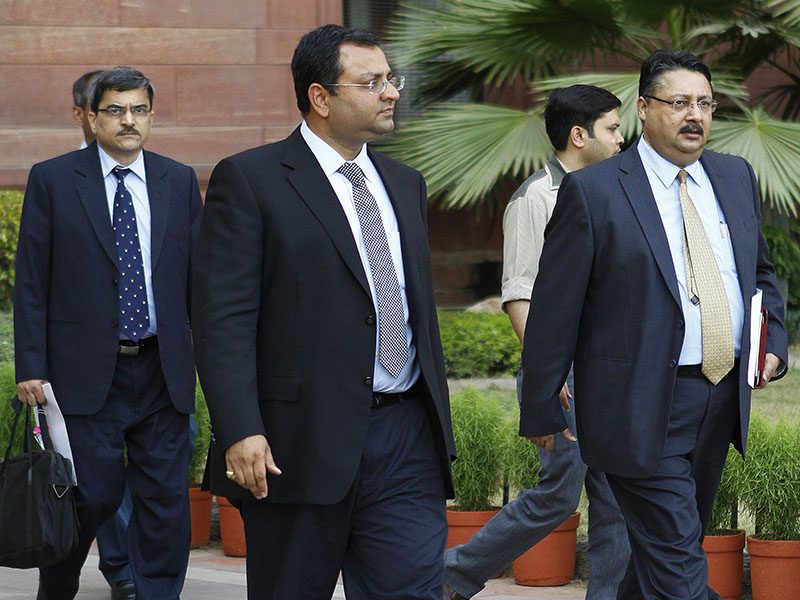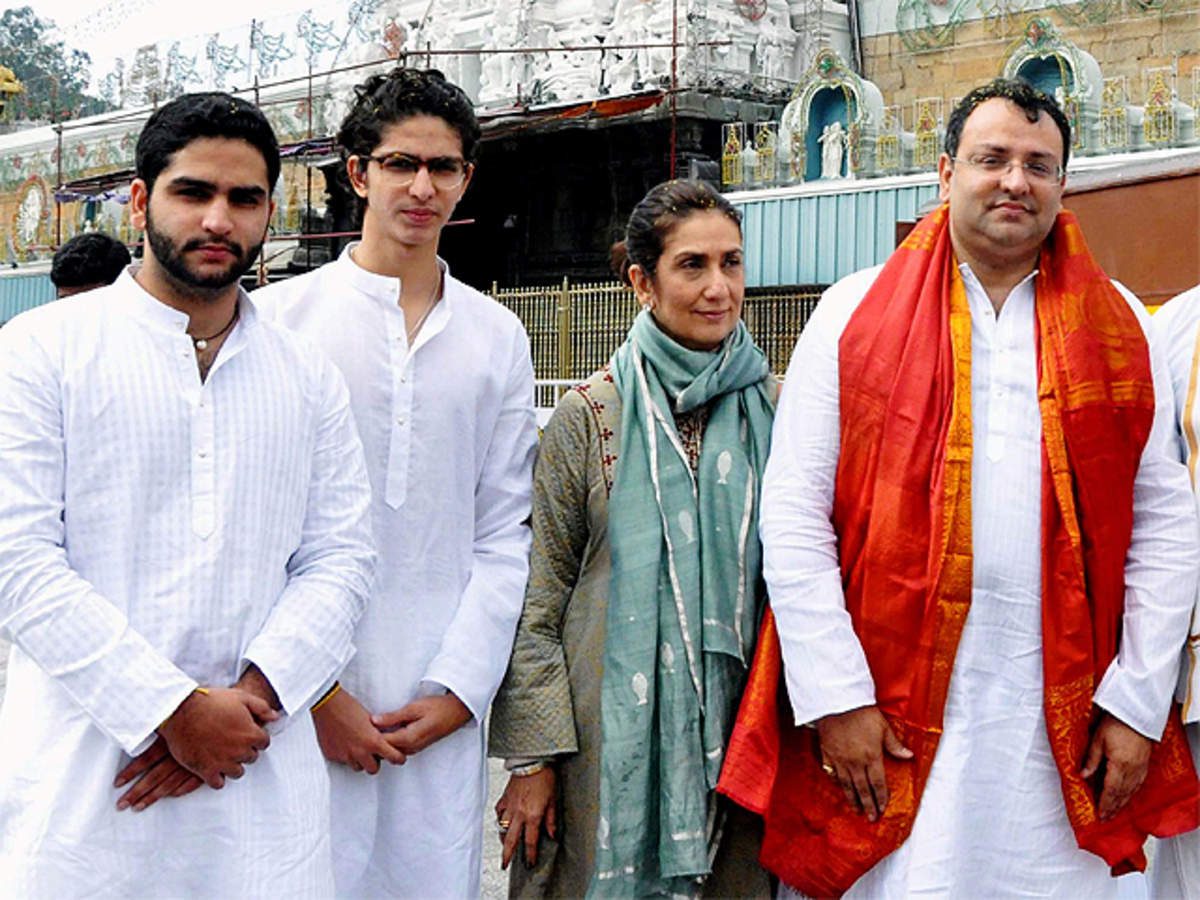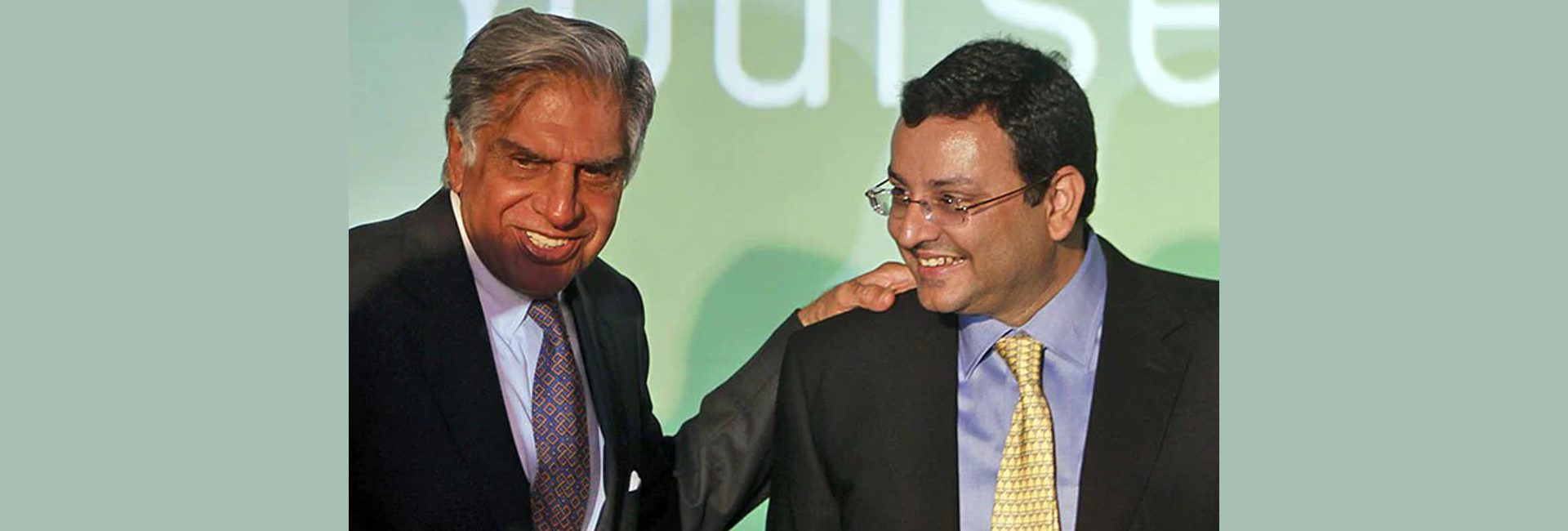(September 6, 2022) On Sunday, September 4, 2022, business tycoon Cyrus Mistry was killed when his Mercedes rammed into a divider. The younger son of the construction magnate Pallonji Mistry, Cyrus was travelling from Ahmedabad to Mumbai when the accident took place. He was rushed to hospital, where he was declared dead on arrival. Condolences poured in for Mistry, who was one of India’s wealthiest businessmen, valued at some $29 billion at the time of his death. He served as managing director of the Shapoorji Pallonji Group before he took over Chairman of Tata Sons in 2012. He succeeded Ratan Tata as the first first non-Tata to head the Indian business empire. In 2013, the Economist described Mistry as “the most important industrialist in both India and Britain.” Global Indian takes a look at the remarkable life of this business tycoon.
India Inc, political leadership take to Twitter
Condolences poured in from industry and political heavyweights, including Prime Minister Narendra Modi, Harsh Goenka and Anand Mahindra. “The untimely demise of Shri Cyrus Mistry is shocking. He was a promising business leader who believed in India’s economic prowess. His passing away is a big loss to the world of commerce and industry. Condolences to his family and friends,” tweeted PM Modi.
Hard to digest this news. I got to know Cyrus well during his all-too-brief tenure as the head of the House of Tata. I was convinced he was destined for greatness. If life had other plans for him, so be it, but life itself should not have been snatched away from him. Om Shanti 🙏🏽 https://t.co/lOu37Vs8U1
— anand mahindra (@anandmahindra) September 4, 2022
Tata Consultancy Services also issued a statement, describing Mistry as “a warm, friendly and congenial person who built a strong relationship with the TCS family during his time as the Chairman of the company.” Finance Minister Nirmala Sitharaman also expressed her sadness. “I was convinced he was destined for greatness. If life had other plans for him, so be it, but life itself should not have been snatched away,” tweeted Anand Mahindra.
Mistry became known for his serious demeanour and his reserved manner. “In my four years of working with him, I have been to his house only for the annual party,” one member of the Tata Group board told Livemint. “He is professional and keeps to himself. But at the same time, his mobile number was available with at least hundreds of Tata group executives.”
Tycoon at 26
Mistry was born to Pallonji Mistry and Patsy Perin Dubash, in Dublin, on July 4, 1968. The Mistry family was one of the wealthiest in Ireland at the time. Mistry attended the Cathedral and John Connon School, one of Mumbai’s oldest and most elite educational institutions. He moved to England shortly in 1990, to study at the Imperial College of Science, Technology and Medicine. He earned a degree in civil engineering and then a Master’s in management from the London Business School in 1996.

Cyrus Mistry with Prime Minister Modi in 2016
In 1991, shortly after graduating from college, Cyrus assumed his position as the scion of his father’s construction empire. He took over as director, Shapoorji Pallonji & Co. Three years later, he became Managing Director. He was only 26 at the time. Mistry is widely credited for having taken the Shapoorji Pallonji group to new heights – the company employs over 23,000 employees across India, the Middle East and Africa.
The era of firsts for Shapoorji Pallonji & Co
Under his leadership, the company’s interests expanded from pure constructions to executing projects under design and build. They implemented complex projects in the marine, oil and gas and railway sectors. Shapoorji Pallonji & Co went on to construct India’s tallest residential towers, the longest rail bridge, the largest dry dock and the largest affordable housing project.
Mistry also oversaw the infrastructure development vertical, which began in 1995 with a 106 MW power project in Tamil Nadu, followed by the development of India’s largest biotech park near Hyderabad. They also made their foray into agriculture and biofuels before Mistry resigned to take over as the deputy Chairman of the Tata group.

Vallarpadam Railway Bridge, the longest in India, contructed by Shapoorji Pallanji & Co
The Tata connection
The Pallonjis are one of India’s oldest business families, with links going back well over a century. In 1930, Mistry’s grandfather, Shapoorji Mistry, acquired a stake in Tata Sons. His son, Pallonji Mistry, held the stake, which now stands at 18.5 percent, the largest block of shares held by a single group. In 2006, Pallonji Mistry stepped down from the board of directors of the Tata Group, his son, Cyrus, took his place. Cyrus himself had served as director of Tata Elxsi, a post he accepted in 1990 and remained in for a decade, until October 2009. He was also a director of Tata Power Co until late 2006.
In 2013, Mistry made history when he succeeded Ratan Tata as the chairman of the Tata Group, going on to head all the major Tata companies including Tata Steel, Tata Motors, Tata Consultancy Services, Indian Hotels, Tata Global Beverages and tata Chemicals. He became the sixth – and youngest – chairman to head the conglomerate.
Making history
Mistry wrote later, after his controversial dismissal which resulted in a years-long legal battle, that the proposal first arose in 2011. “After some exploration by a search committee (actually, Mistry was part of this committee also, by virtue of his place on the board of directors), I was approached by both Ratan Tata and Lord Bhattacharya individually to be a candidate for the position. I politely declined,” he revealed later.
Mistry was involved with building and growing his family’s own business, which was booming under his leadership. The Tatas continued their search, as Ratan Tata’s retirement grew more imminent. “The committee was unable to find a suitable candidate, I was asked to reconsider.” He found it harder to refuse the second time around. After consulting with his family, he “took courage to overcome (his) initial reluctance and agreed to consider the position.”

When controversy came calling
In late 2016, Mistry wrote a tell-all letter, saying he was “shocked beyond words at the happenings at the board meeting of October 24, 2016.” On that day, Tata Sons had inducted two new directors into their board, after the abrupt ousting of their Chairman. A furious Mistry decided it was not the time to remain quiet and termed the move “shocking and unparalleled.”
For four years, his tenure as Chairman of Tata Sons, Mistry had maintained the reticence characteristic of the Shapoorji Pallonjis, and didn’t give a single interview. His father, Pallonji Mistry was even known as the ‘Phantom of Bombay House’. As for Cyrus Mistry, he was once said to have stopped a media consultant making a presentation to ask him, “Do you know who is the chairman of 3M?” His point was simple – the company brand is more important than the personalities of those at the helm.
The big-league boardroom battle
When he was “replaced without so much as a word of explanation or being afforded an opportunity of defending himself,” Cyrus Mistry decided it was time to break the legacy of silence.
The action, he said, was sudden and the resulting speculation had done his reputation, as well as that of the Tata Group, “immeasurable harm,” he wrote.

Tata Group Chairman Cyrus Mistry after a meeting at the Finance Ministry on May 29, 2012 in New Delhi, India. (Photo by Vipin Kumar / Hindustan Times via Getty Images)
Saying that he had taken on many problems with his role as Chairman, he “had to take many tough decisions with sensitive care to the group’s reputation as well as containing panic amidst internal and external shareholders.” The sum of the matter seems to be that Cyrus Mistry was not given the free hand that he had been promised, mentioning that “once, the trust directors had to leave a Tata Sons board meeting in progress for almost an hour, keeping the rest of the Board waiting, in order to obtain instructions from Mr Tata.”
If the Tatas expected Mistry to go quietly, they were proved very wrong. Mistry went on to appeal his removal to the National Company Law Appellate (NCLAT), which ruled that it was indeed illegal. The high-profile boardroom battle didn’t end there. The Tata Group’s board appealed the NCLAT verdict in the Supreme Court, which ultimately ruled in their favour, after Mistry had been briefly reinstated.
Mistry received grudging admiration even from directors of the Tata Group board. They called him “hard-working” and “more likely to be seen supervising work at a construction site than in a cabin in the office,” according to Livemint.
The family he left behind

Cyrus Mistry and his family
Mistry is survived by his older brother, Shapoor Mistry, who is an Irish citizen and is married to Behroze Sethna. He also has two sisters – Laila, who is married to London-based portfolio manager Rustom Jehangir and Aloo, the wife of Noel Tata, the half-brother of Ratan Tata. Mistry was married to Rohiqa Chagla, daughter of prominent lawyer Iqbal Chagla and the granddaughter of the jurist MC Chagla. The couple has two sons.
The Mistry family’s real estate assets reportedly include a White-House style, seaside Mansion in Mumbai, the 200-acre Manjri stud farm in Pune and homes in Surrey, London and Dubai.
Also Read: Global Footprints: Top five Tata companies shaping the world


